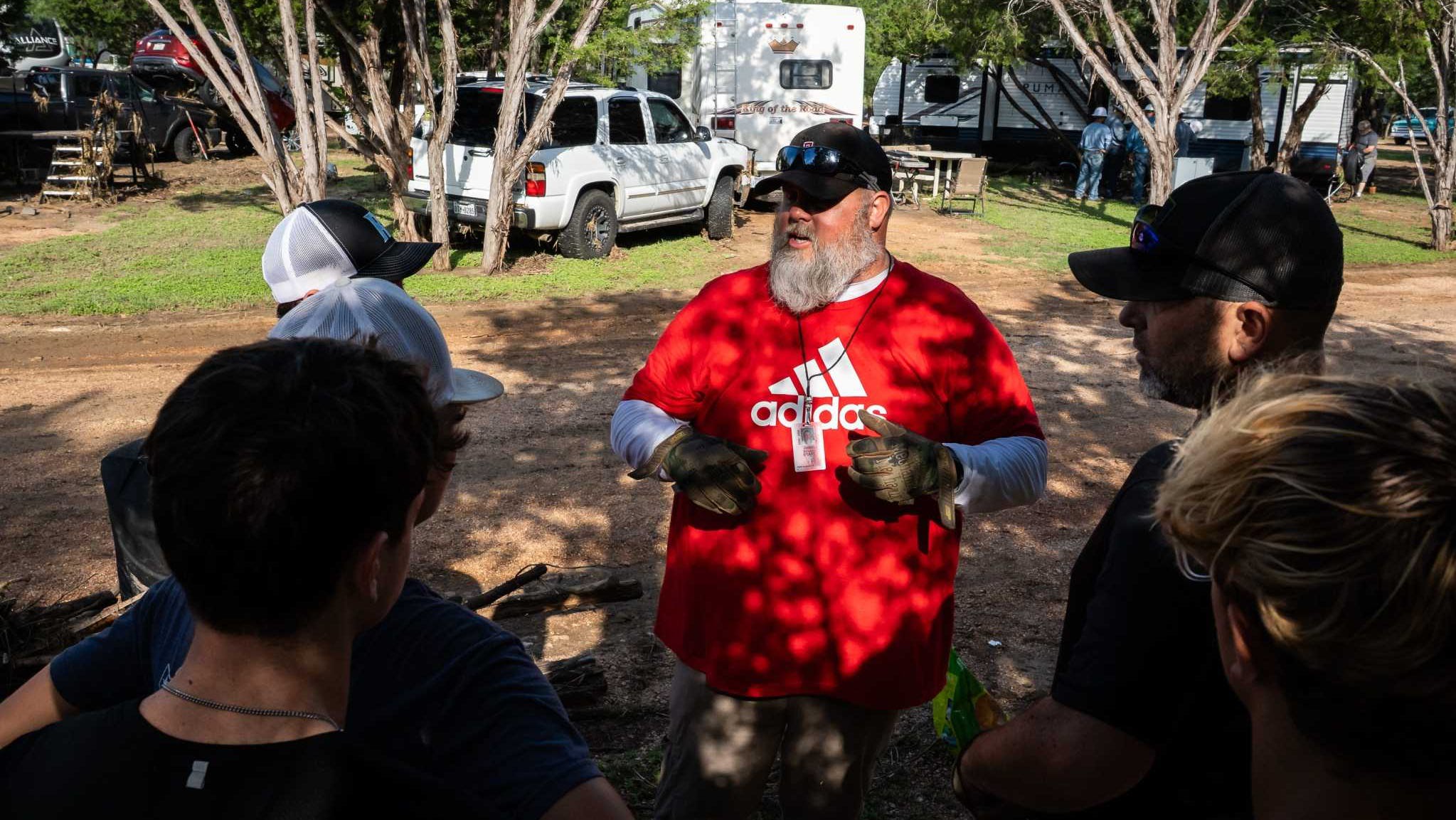news
Cleaning up from the flood? Watch for water, snakes and other dangers
While cleaning up from the flood, stay hydrated and safe to avoid falls, cuts, snake bites and toxic water injuries.
Published July 9, 2025 at 4:27pm

Central Texas emergency rooms are preparing for what happens after the floods when the cleanup begins.
We talked to St. David Medical Center's Dr. Ryan McCorkle about what he expects will come his way and how not to end up in the the emergency room and Dr. Desmar Walkes, the public health authority at Austin Public Health, about what the ongoing health concerns will be.
Clean up safely
- Gather friends and neighbors and clean up together instead of alone.
- Take your time and go slowly to avoid tripping or things falling on you.
- Wear closed-toed shoes with a thick sole, gloves, a mask and eye protection. A hard hat is also recommended. Wear a respirator indoors when you are working with enclosed areas to protect against mold spores. Be in touch with your insurance company for guidance around whether you should do the clean up or whether they want to call a mold remediation team, which has the equipment.
- Clean up in the light of day, not when it's dark.
- Make sure the electricity is turned off if there is still standing water.
Watch for displaced wildlife
As you are cleaning up, be careful where you step and where you put your hands. Snakes, especially, like to be under piles and there are a lot of debris piles.
If you do get bit, you need to go to a hospital, not a standalone ER or clinic. Hospitals usually keep anti-venom in stock. Do not bring the snake to the ER, McCorkle said, because if you do, the hospital will be dealing with more than one snake bite. Instead, take a picture of the snake to allow the staff to pick the right antivenom.
Do not follow the myths by trying to suck out the venom or cutting the wound or even using a tourniquet. Instead, take off any rings or watches or anything else that could constrict swelling, keep the area still and level with the heart. Then head to the hospital.
Also watch for spider bites. A black widow or brown recluse bite might become a medical emergency if the symptoms are severe or if the wound is not healing.
And be aware of stirring animals' nests. Raccoons, foxes and bats all can carry rabies. You'll need a series of five shots in the arm to prevent what can become a deadly disease in humans.
Be careful with cuts
As people work through the rubble, they could come across rusty metal. Clean a wound thoroughly. If the bleeding won't stop, head to the emergency room. If you haven't had a tetanus shot in the past 10 years, now's the time. If you come into the ER with such a cut, you will get a tetanus shot if it has been more than five years since your last one or if you're not sure. Tetanus causes the jaw to lock, which makes it difficult to eat and breathe.
People who get cut and come into contact with dirty flood water also can get infections.
Watch for standing water
Warm standing water is a recipe for bacteria and amoebas to grow. Think feces from humans and animals, and toxins from cars and homes. Avoid putting our face in the water and thoroughly clean your body and clothes after working around flood waters.
It will be a while before it will be safe to swim in area lakes again. In 2023, a Travis County resident died from an amoeba after swimming in Lake LBJ.
People should not be swimming in local lakes, rivers, swimming holes and other bodies of water right now, Walkes said, especially as the recovery efforts are on-going. "There are still safety concerns."
Throw out food
Anything that has touched flood water or dirt or if the electricity has been off for more than four hours and it's a perishable item.
Watch for mosquitoes
Austin Public Health already has issued warnings about West Nile virus and other mosquito-borne illnesses that can be prevalent after flooding.
“This has been a wetter and cooler summer so far, a combination which mosquitoes thrive in,” said Austin Public Health Director Adrienne Sturrup. “Let’s do what we know works to stay safe. Dress appropriately, use repellent and clear out standing water to keep mosquitoes away.”
- If you can empty standing water from buckets, tires, flower pots and pools, do so.
- Wear mosquito protection with DEET.
- Dress in light-colored long pants and long sleeves.
- Be aware that the mosquitoes that have West Nile like the dusk and dawn hours.
Stay hydrated
Even though we haven't had the 100-degree temperatures, our humidity levels have been high because of all the rains.
You can prevent heat stroke and heat exhaustion by doing these things:
- Avoid the heat of the day between 2 and 6 p.m.
- You need to prehydrate: Drink plenty of water or something with electrolytes before you go out and keep hydrated throughout the day. Sodas, coffee, tea and alcohol actually dehydrate you.
- Take breaks in the shade.
- Wear lightweight, light-colored clothing and a hat.
- Use cool rags around your neck.
- Watch for signs like excessive sweating or no sweating, dark urine, confusion, dizziness, nausea, fast heart beat, cool or clammy skin, a prickly rash.
Watch your mental health
"This has been a very heartbreaking time for us," Walkes said. and reminded that this will be "a marathon, not a sprint," Walkes said. People can call Integral Care, 512-472-4357 to access mental health services or 988.

